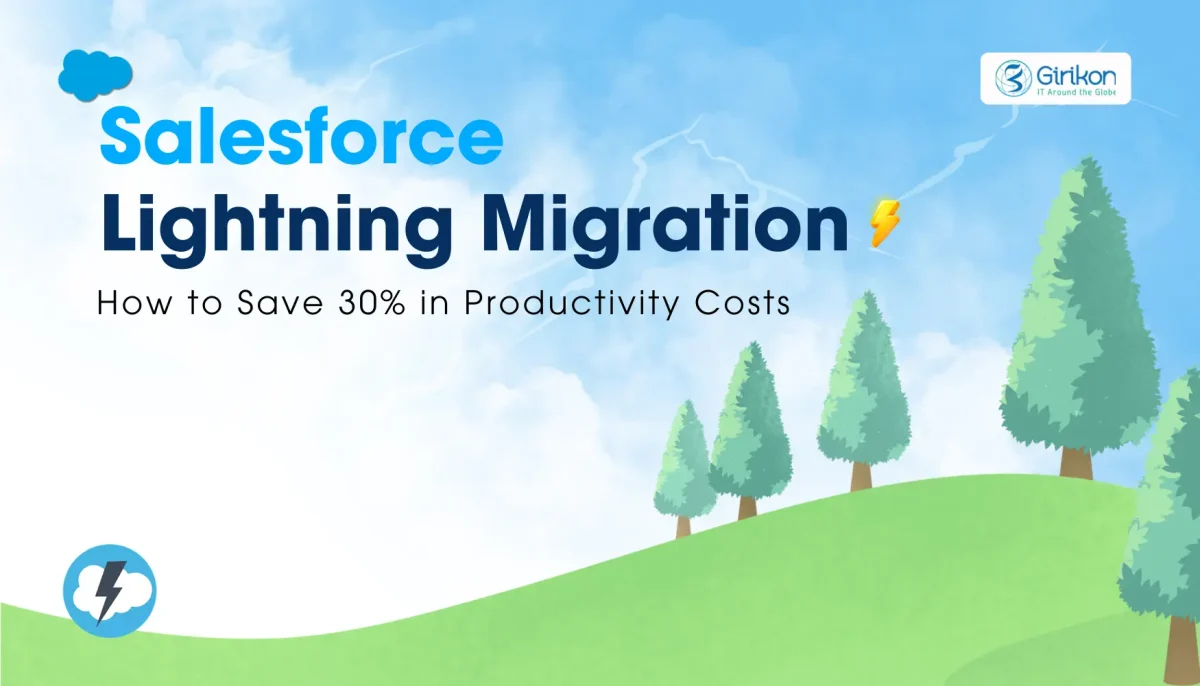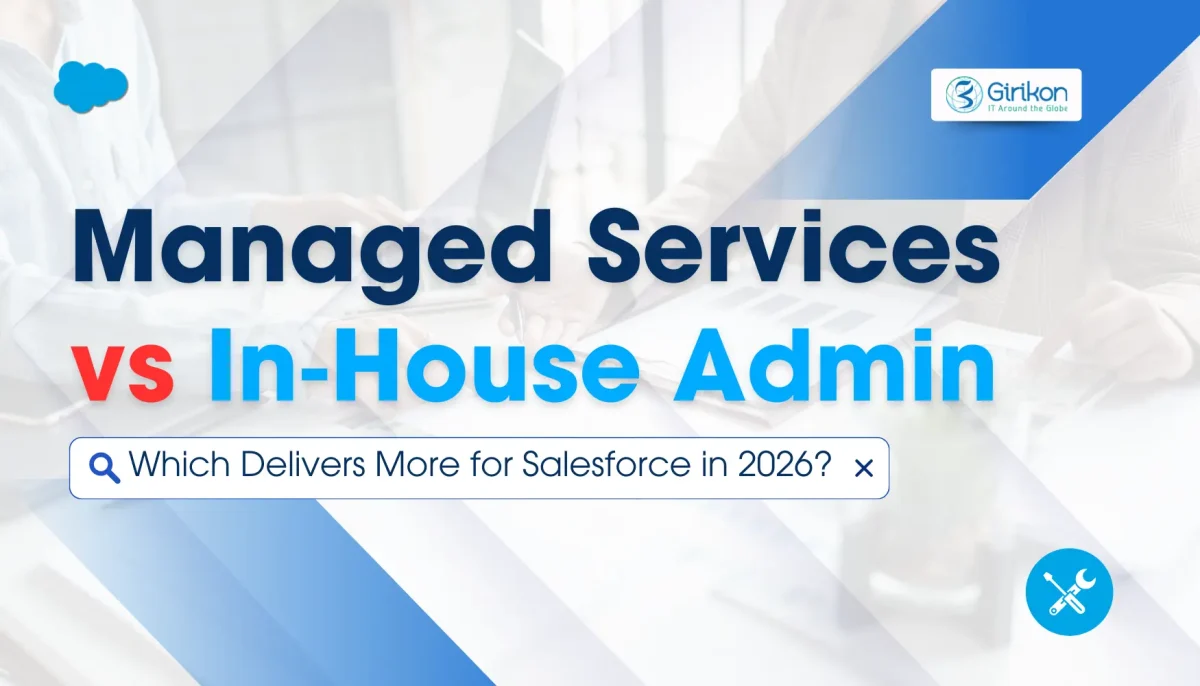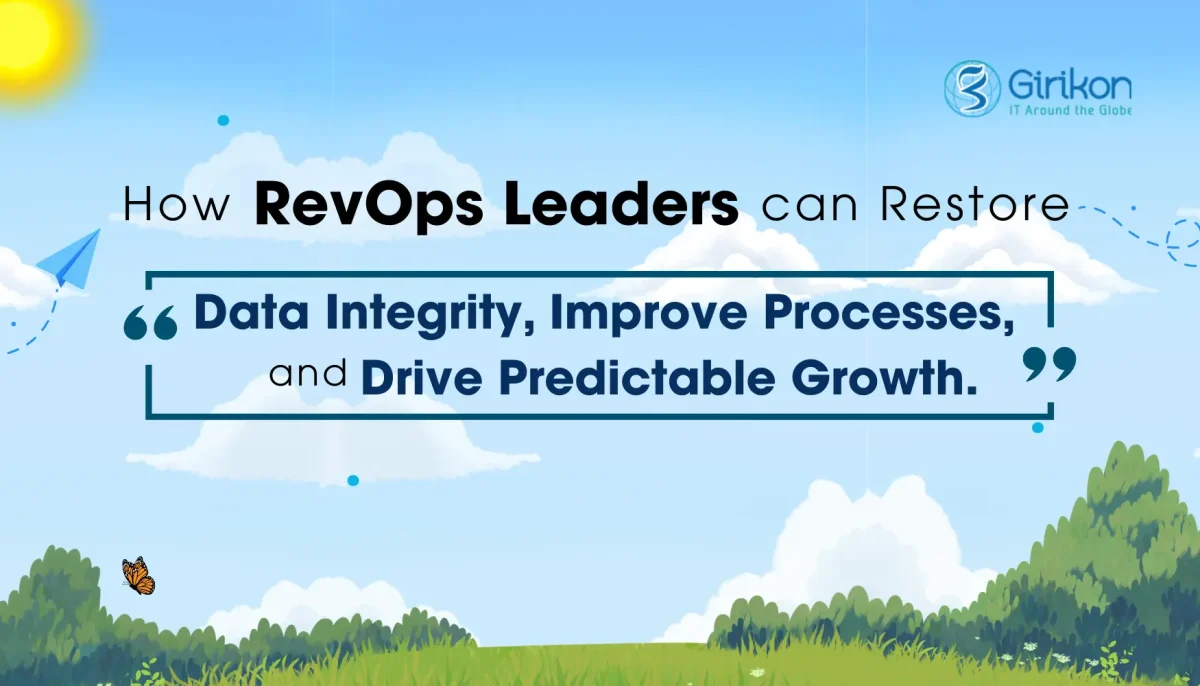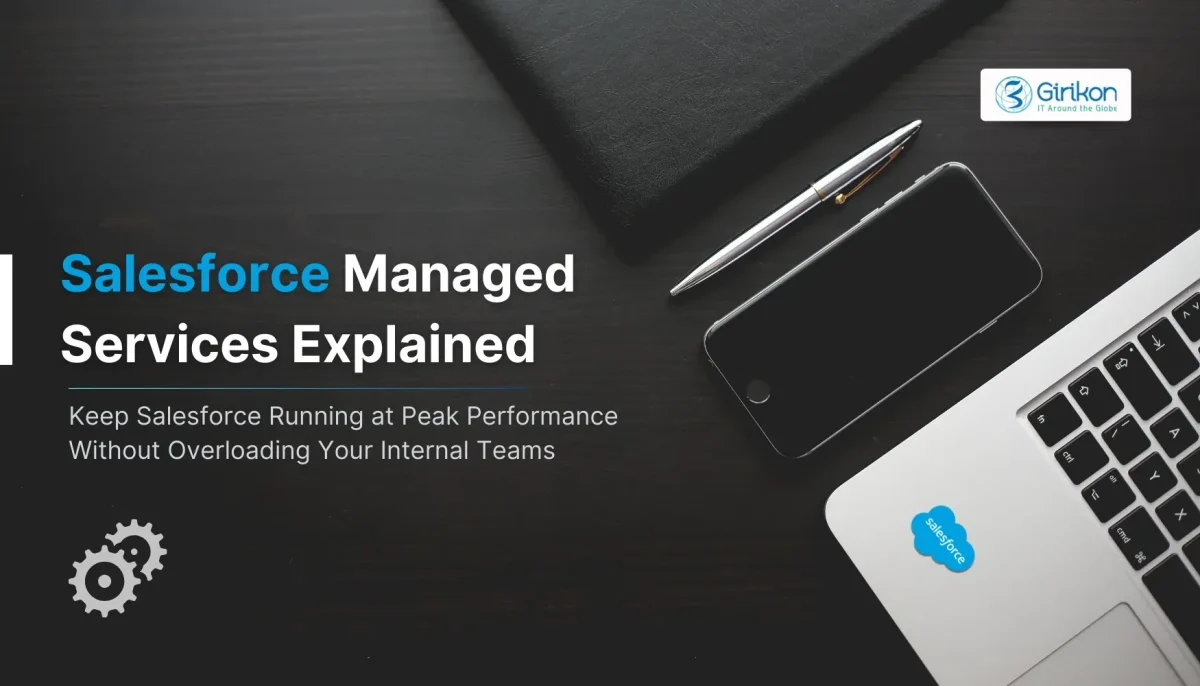The ultimate goal of every organization is consistent revenue. This happens when businesses are able to ensure seamless processes, maintain operational efficiency while maintaining amiable relationship with clients. This is where the need for a robust CRM system like Salesforce steps in. While Salesforce with its wide range of features and functionalities empowers businesses to create personalized solutions, to meet their specific business needs, it can turn out to be extremely frustrating when it isn’t implemented properly.
While reimplementing Salesforce is the only solution, which businesses usually retort to- fully rebuilding the platform from scratch might be disruptive, costly and unnecessary. Revenue Operations (RevOps) teams are adept at fixing broken Salesforce Org. With organized RevOps Salesforce optimization, they can manage root-level inadequacies, realign teams, and rebuild confidence in the system so that business runs smoothly.
Why Does Salesforce Org Collapse at the First Place?
Salesforce orgs do not collapse overnight. They degrade with growing complexity weak governance. Some of the common Salesforce RevOps issues include poorly defined lifecycle stages, duplicate automation, unnecessary customization, unpredictable data governance, siloed ownership across departments, reports created on unreliable fields, unused objects, and manual workarounds layered on top of automation. Some issues that emerge over time— such as implementing automation without proper documentation, leadership revises reporting expectations, and business models evolve. What once began as a strategic CRM slowly turns into a fragmented system. RevOps fail to address surface-level indicators. Rather, it emphasizes on classifying and determining the underlying root causes.
What are the Steps followed by RevOps Teams for Strategic Optimization?
Diagnose Before Prescribing
The biggest blunder companies usually make is jumping right away to solutions. RevOps starts with step-by-step discovery. First, process mapping monitors how leads shift from Marketing to Sales via Closed Won, Customer Success, and Renewal. Then it’s compared to how Salesforce actually handles it, where misalignment often breaks it. This is followed by a data health audit to evaluate duplicates, field compliance, lifecycle gaps, stage discrepancies, and unrestricted automation. Finally, an automation inventory exposes conflicting workflows, obsolete processes, and hard-coded logic. This ensures documenting everything before making changes.
Redesign the Revenue Lifecycle
Issues pertaining to Salesforce are usually non-technical, they’re mostly structural. RevOps begins by redefining the revenue lifecycle: when pipeline formally starts, how renewals enter prediction, and what defines churn. Without shared definitions, reporting becomes untrustworthy. RevOps regulates lead statuses, stages of opportunity, account lifecycle fields, forecast categories, and lost reasons. This positioning restores clarity, optimizes prediction accuracy, and eliminates several persistent Salesforce RevOp issues at the root level.
Clean, Combine, Simplify
Salesforce environments tend to become messy with unexploited essentials and overlying configurations. RevOps uses a “less yet better” mindset to restore competence and clarity. This means eliminating unused fields, identical picklist values, redundant automation, legacy objects, and outdated reports. It also involves combining reporting structures, approval processes and validation rules. RevOps also simplifies page layouts, decreases unnecessary fields, modernizes sales rep workflows, and elucidates marketing attribution logic, which creates a system that is simpler to use, govern, and scale.
Fix Reporting from the Ground Up
Inaccurate reporting is often the most visible sign of a broken Salesforce org. Leadership begins interrogating why pipeline isn’t aligning with revenue, why predictions miss the mark, and why dashboards tell contradictory stories. But the issue isn’t the dashboards- it’s the underlying architecture. RevOps addresses this by imposing stage-to-forecast mapping, close date discipline, consistent opportunity types, obligatory loss reasons, and clear pipeline inclusion criteria. Only after protecting the foundation does reporting get reconstructed with confidence.
Rebuild Automation
Automation creates confusion and instability if not managed properly. RevOps restructures automation into a unified Flow architecture backed by clear naming conventions, strong certification standards, and well-ordered version control. They enforce logic governance: no automation without documentation, no duplicate triggers or field updates that aren’t associated to lifecycle logic. Rather than loading new automation on top of prevailing chaos, RevOps emphasizes on rationalizing the foundation first.
Re-Establish Governance
A broken salesforce org is a result of scattered ownership and decisions that lack oversight. RevOps restores control by validating authority structures—defining a clear process of change request, executing approvals of field creation, establishing an automation review board, directing quarterly audits, and upholding release documentation standards. Without governance, even the best optimizations wear away over time. Strong governance safeguards answerability, system integrity, and prevents recurring issues from resurfacing.
Align CRM Behavior and Incentives
Sometimes the problem isn’t CRM—it’s the user behavior. Sales reps may omit stages to ensure faster closure of deals, create occasions late to optimize conversion metrics, or inability to log renewal pipeline precisely. These actions distort forecasting and reporting. RevOps function with leadership to readjust reimbursement structures and CRM data rules. As a result, behavior supports system integrity. When different stages directly impact prediction and commissions, reps trail the process. True system alignment occurs when incentives align with expected CRM behavior.
Strengthen Cross-Functional Visibility
A broken Salesforce org often mirrors fragmented communication across departments. RevOps leverages Salesforce to create transparency across the revenue engine. This illustrates handoffs, surfacing SLA compliance, tracking velocity of the pipeline, gauging lead-to-revenue conversion, and more. By making performance and answerability visible across teams, optimization rebuilds cross-functional alignment and reinstates trust between sales, marketing and customer success.
Training and Deployment Should Go Hand in Hand
Even the most well-made system will fail in the absence of strong user adoption. RevOps consider enablement as a core part of optimization, not a final step. This means offering role-specific training customized to how every team uses Salesforce. Sustainable optimization occurs when users comprehend how to use the system but also why the system works that way.
Measure the Impact of Optimization
RevOps optimization verifies its value through quantifiable results: reduced identical data, higher field completion precision, enhanced prediction reliability, quicker pipeline velocity, stronger CRM adoption, lesser manual workarounds, and steady executive reporting.
Rebuilding Revenue Confidence Without Rebuilding Your Salesforce Org
A broken Salesforce org doesn’t translate to a technology failure- it’s a flaw in revenue design. Salesforce mirrors your revenue model, and the time when lifecycle stages start, automation, and reporting lack structure, and the system feels unreliable. Reimplementation isn’t usually necessary. Through disciplined RevOps Salesforce optimization, teams reinstate trust, simplify processes, optimize forecasting, align functions, boost adoption and transform Salesforce into a true revenue engine.

 +1-480-241-8198
+1-480-241-8198 +44-7428758945
+44-7428758945 +61-1300-332-888
+61-1300-332-888 +91 9811400594
+91 9811400594




















